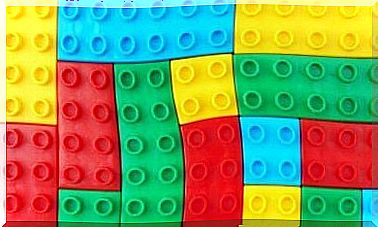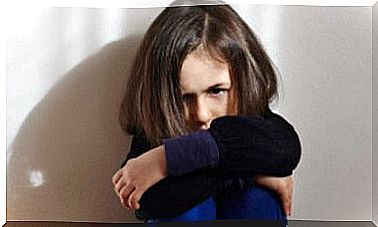The Most Common Food Allergies In Children
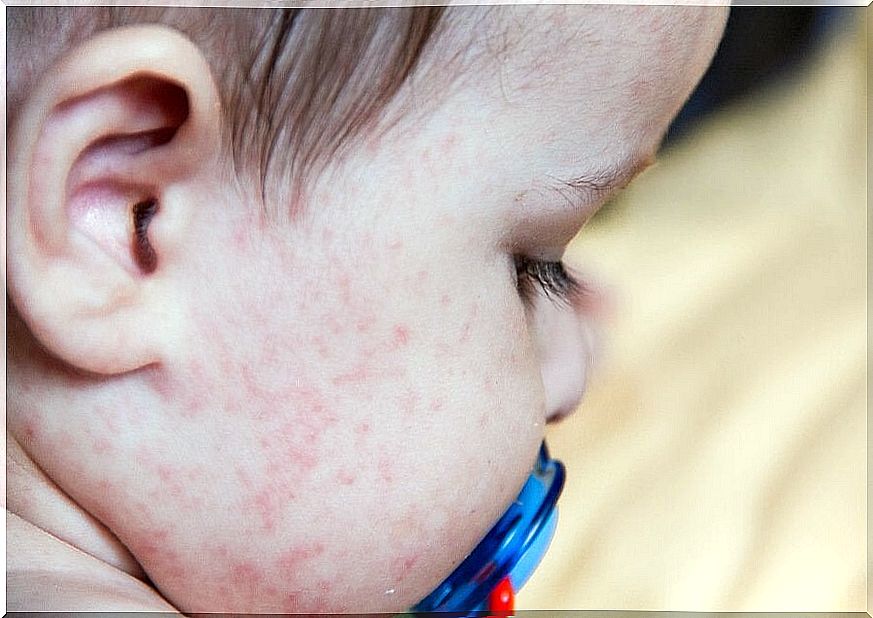
Food allergies in children are not uncommon. When your immune system is allergic to something, it sends a series of warnings to the body. These warnings create uncomfortable symptoms that can even endanger the life of the child.
It is very important that you know which foods cause allergies in your child. You should also know how to recognize the signs your child’s body is sending out.
Finally, you should also know what the difference between a food allergy and food intolerance is and how possible allergies can arise from poor diet.
Unfortunately, when a person is allergic to certain foods, it is a permanent condition. Therefore, it is imperative to know what types of reactions they can produce. At the same time, prevention is the best defense.
Food allergies in children
Often food allergies develop in children due to poor diet. However, certain foods will no doubt lead to an outbreak.
This is why it is very important that you know how to identify the symptoms of food allergies. At the same time, you should understand the difference between food allergies and food intolerance.
Food allergy symptoms
Food allergies can manifest themselves in the form of skin problems, breathing difficulties, and digestive problems, such as:
- skin rash
- Inflammation of the skin
- Bronchospasm
- Bronchial asthma
- Inflammation of the nasal mucous membrane
- Hives
- Swelling of the tongue
- Swelling of the mouth
- Swelling of the eyelids
- anaphylactic shock
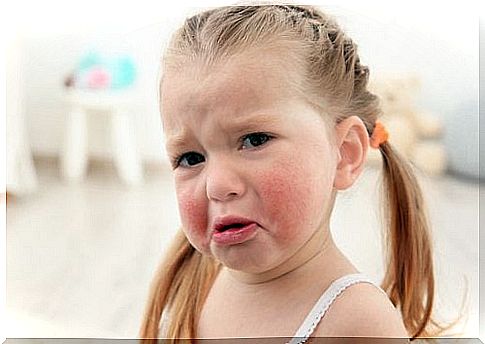
These symptoms can appear 30 minutes after consuming a food allergen.
In most cases, it can take up to 2 or 3 hours for symptoms to show up. In some cases, it can take up to 5 days for symptoms to appear, such as skin inflammation.
Difference Between Allergy Symptoms and Food Intolerance Signs
The signs of food intolerance have to do with the metabolic system. Basically, they show up as digestive problems due to difficulties in processing certain foods.
The three main symptoms of food intolerance are gas, stomach pressure, and diarrhea.
Foods that are common in causing allergic reactions in children
The list of foods is diverse and includes the following products:
- Peanuts or peanut butter
- fish and seafood
- The proteins in cow’s milk
- wheat
- soy
- nuts
- Eggs
- Strawberries
- Peaches
- kiwi
- gluten
How to avoid food allergies in children
Specialists say there is no real way to prevent food allergies in children.
Most paediatricians recommend waiting until they are a little older before adding possible allergens to children’s diets. That’s because allergic reactions are more dangerous in young babies.
There are other ways you can introduce the foods one by one and keep a journal of how your child processes them.
Observe your child for the next few days and see if they show any reactions. If everything is okay, you can try another food and watch the reaction repeatedly.
It’s important not to try more than one or two items on the list at once. This is because otherwise you will not be able to tell which of the foods your child is allergic to if they have a reaction.
Unfortunately, there is no way to combat food allergies. According to experts, allergies are related to hereditary factors.
Therefore, you should be careful if there is already a family history of food allergies. The increased likelihood that your child will also develop this food allergy should be taken into account.
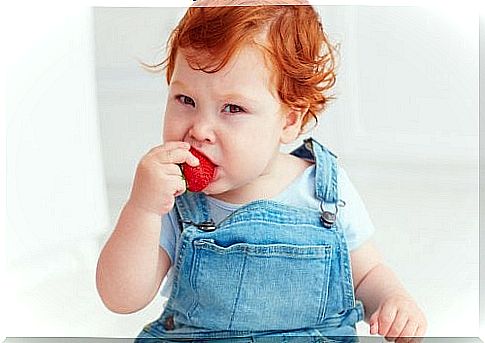
It is important that you read the labels on the packaging of the food you give your child very carefully.
Many products may contain traces of peanuts or small amounts of other substances that can cause an allergic reaction. Without a doubt, prevention is the best solution.
Final consideration
If you’ve identified foods that will cause your child an allergic reaction, you should see a pediatrician. Your pediatrician will recommend that you eliminate this food completely from your child’s diet.
In addition, he will provide you with a nutrition guide that will help you find new alternatives. So you can be sure that your child is still getting all the nutrients they need.
If your child has a severe allergic reaction including swelling, difficulty breathing, or anaphylactic shock, you should call an emergency doctor immediately.



